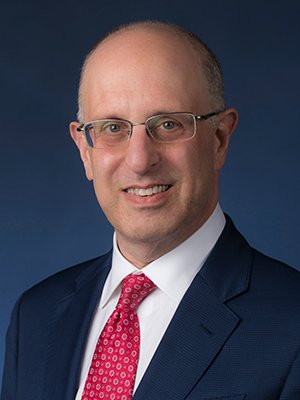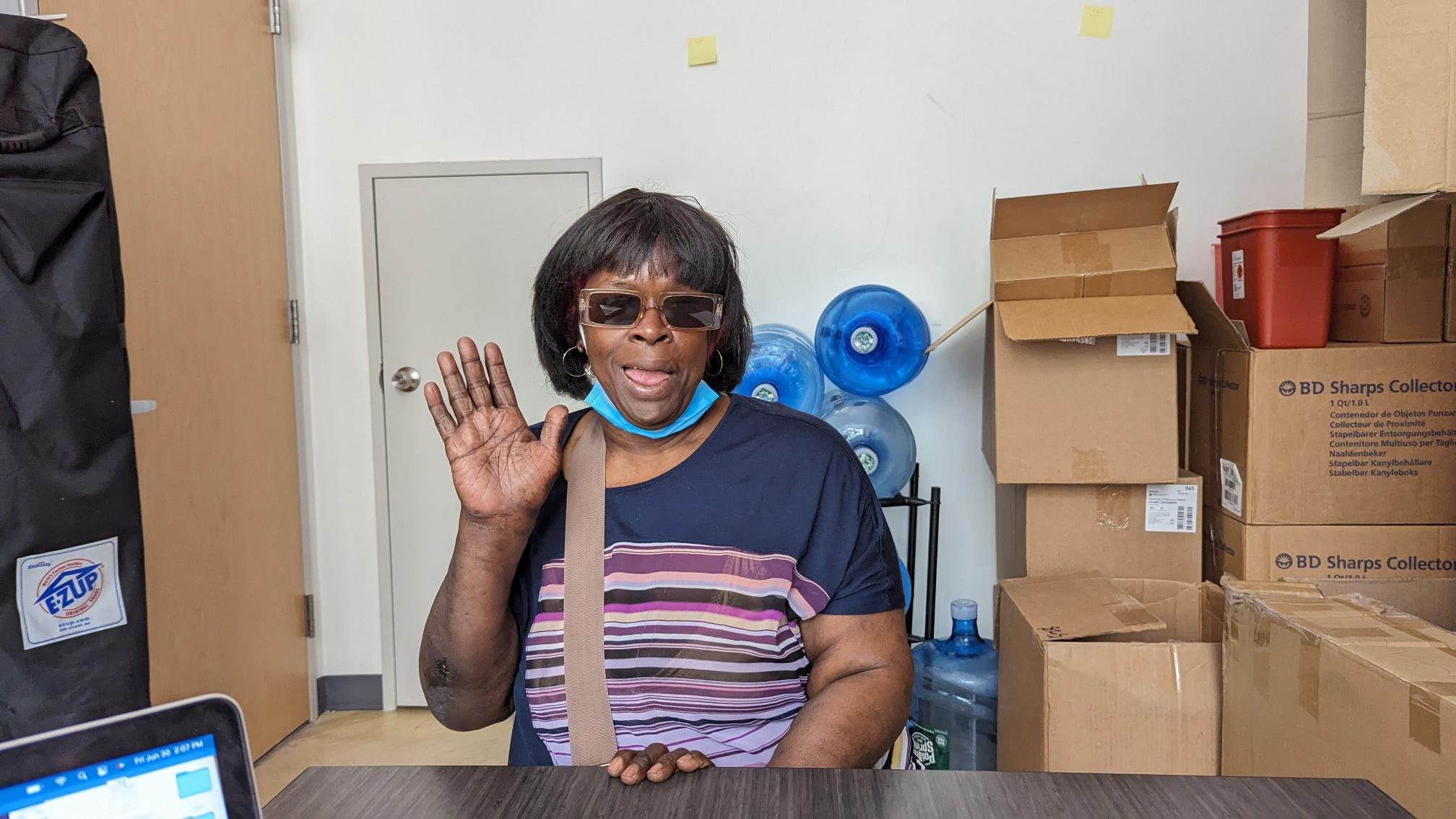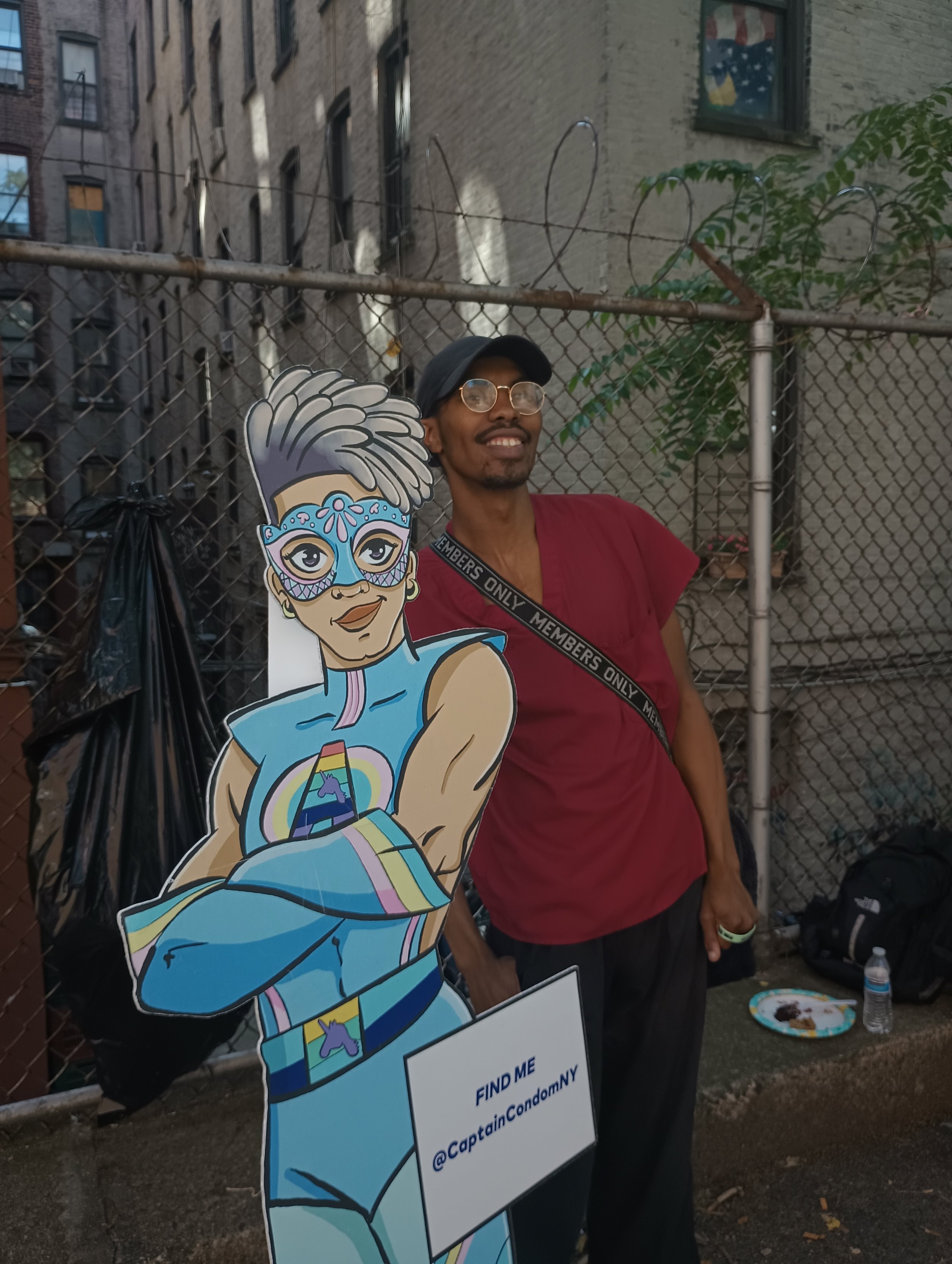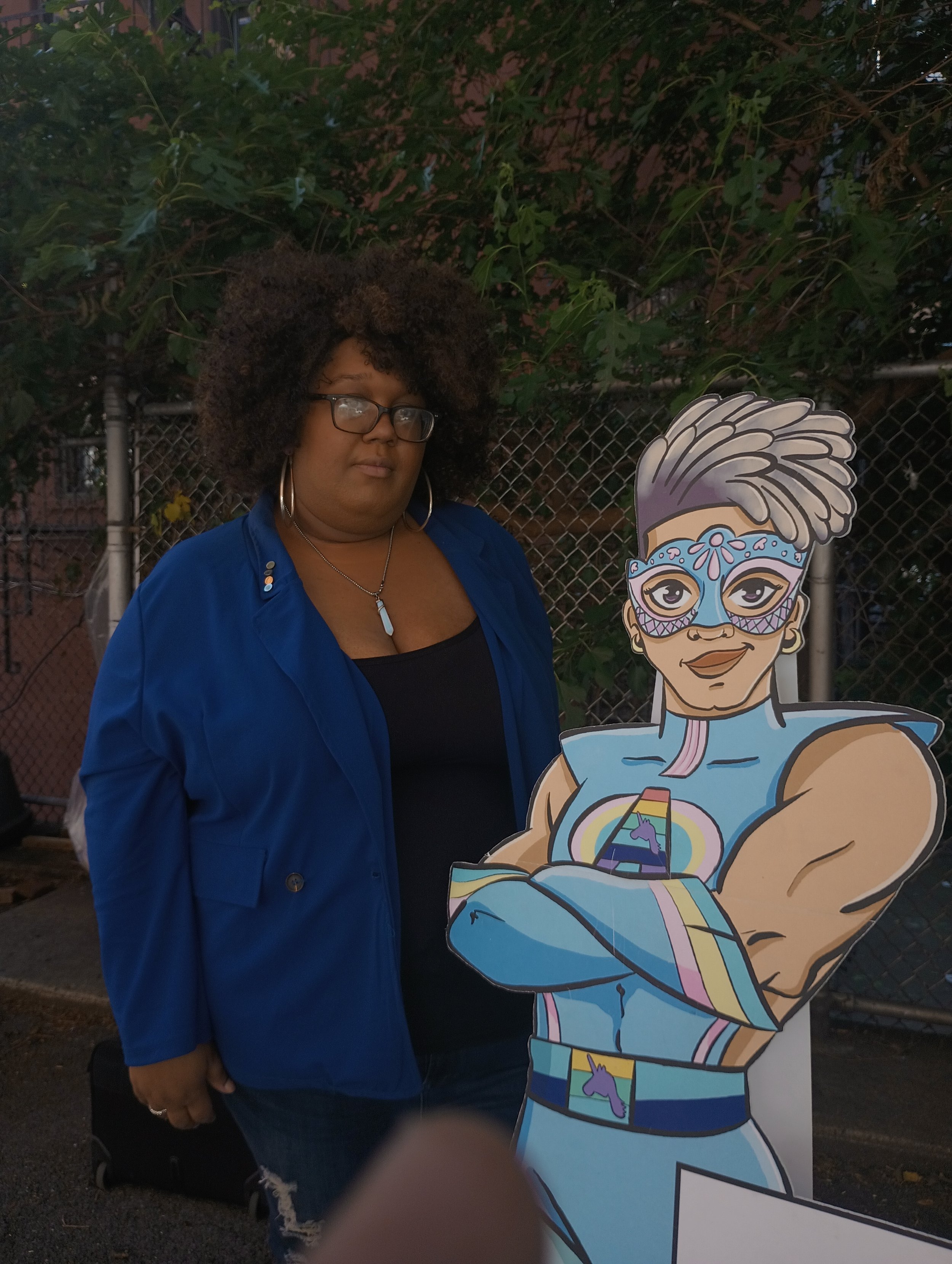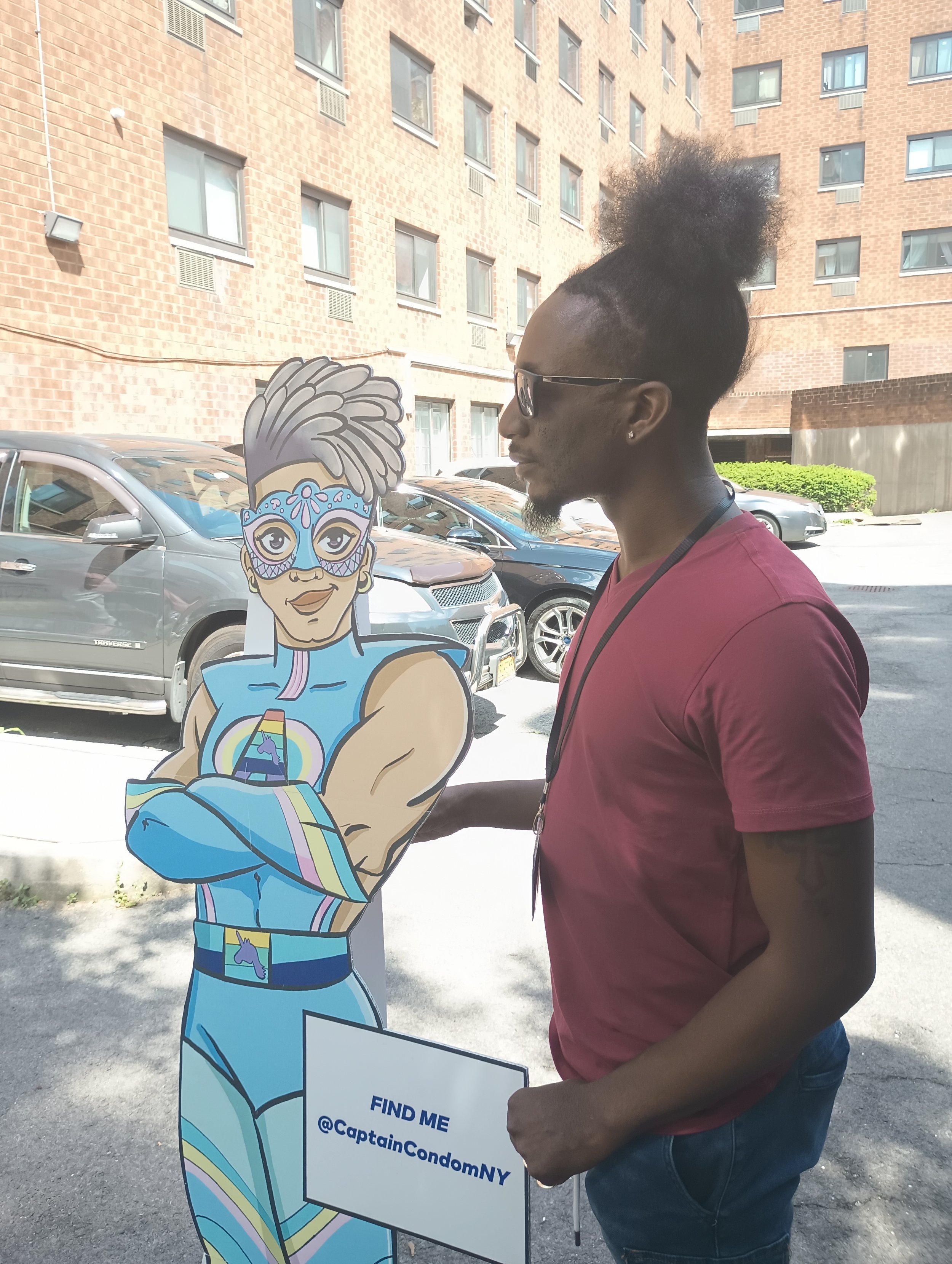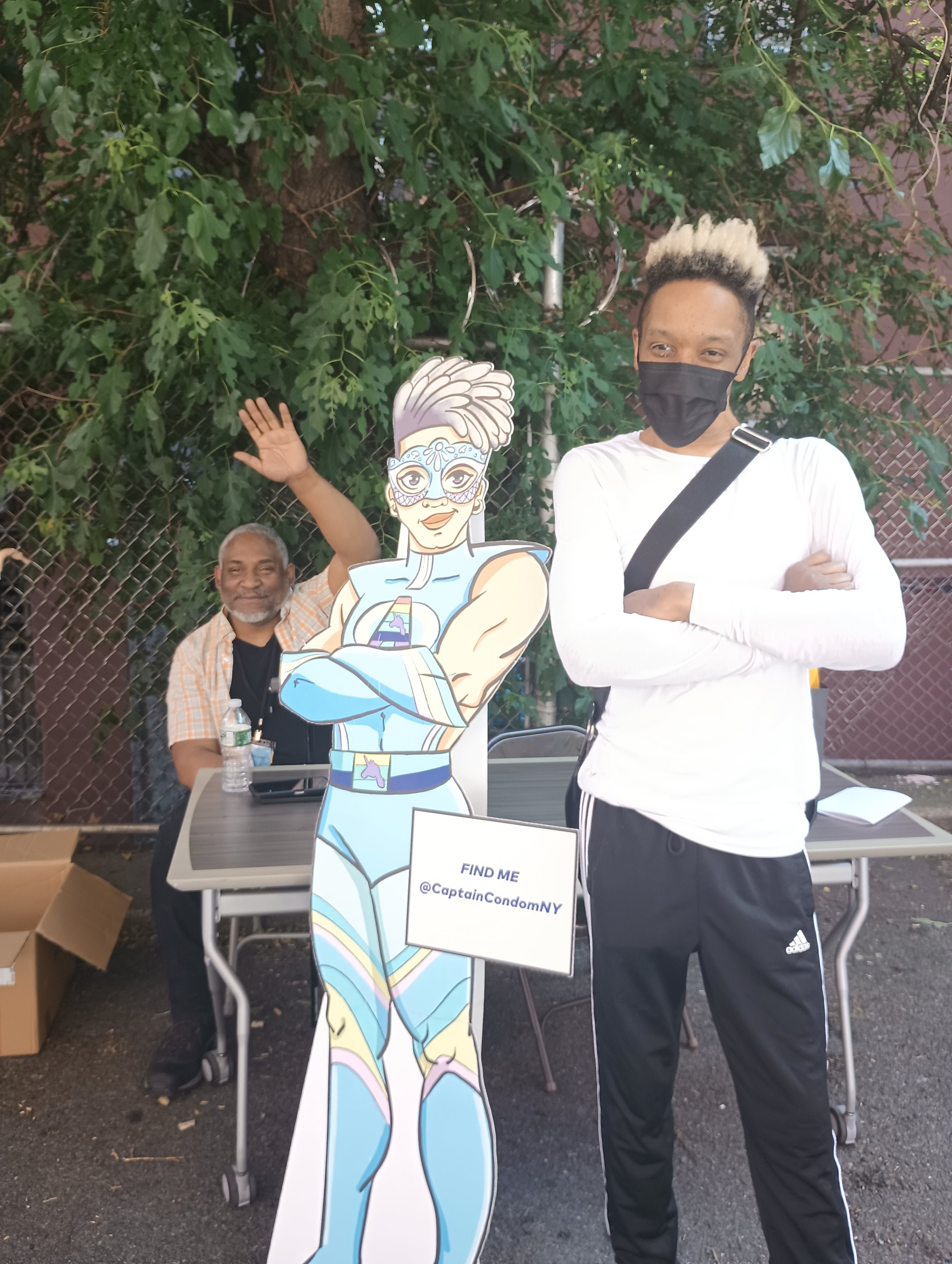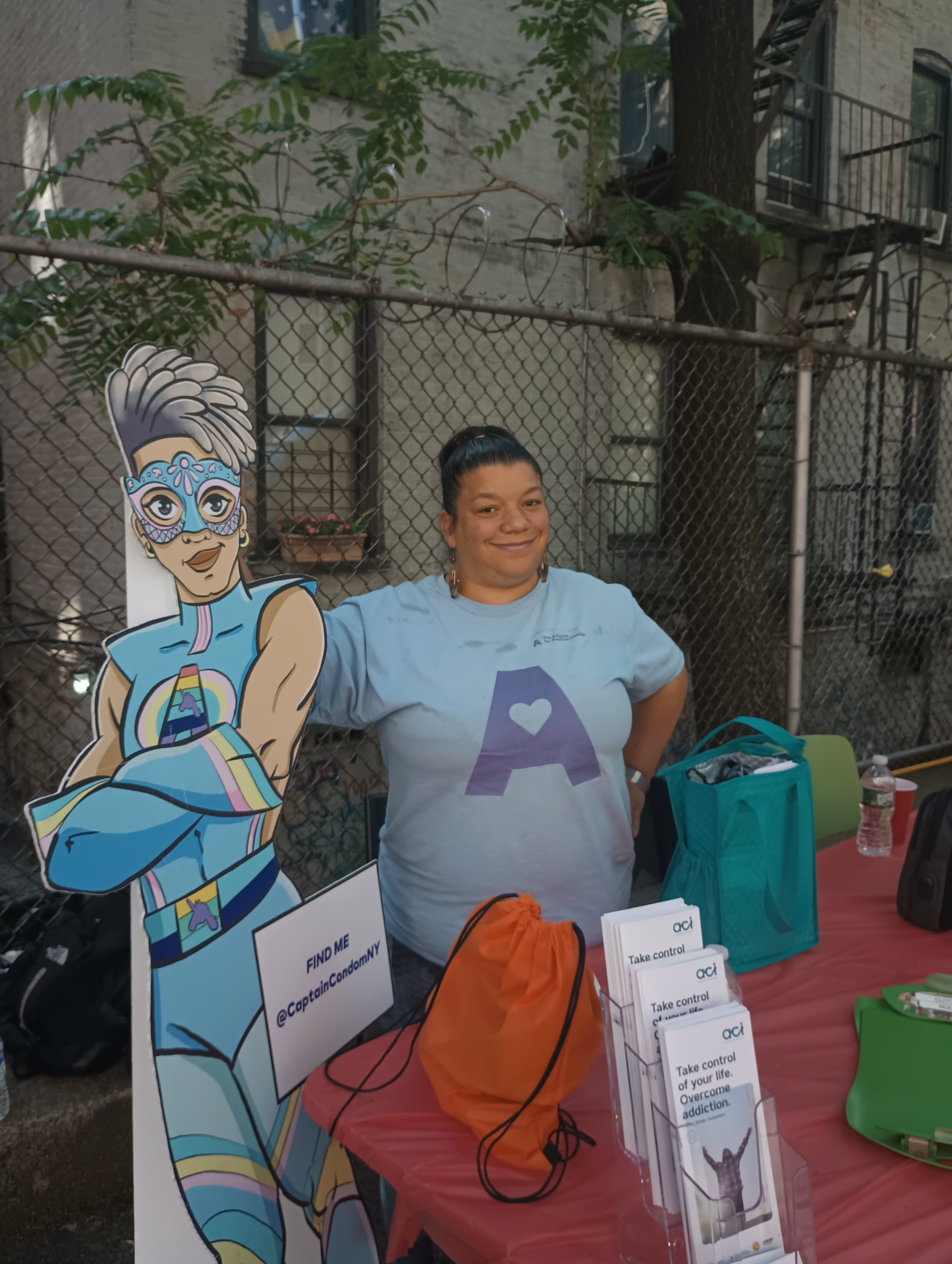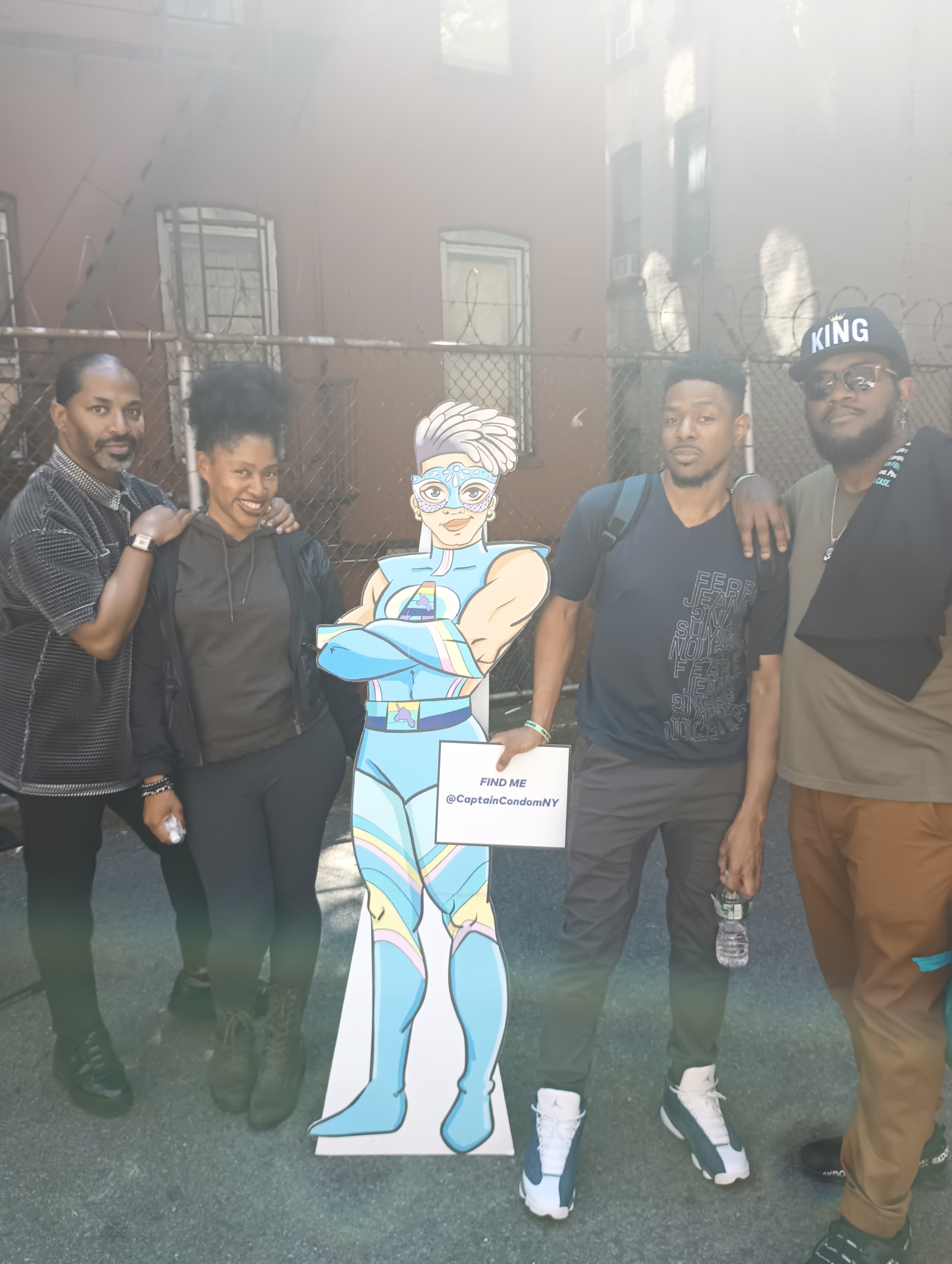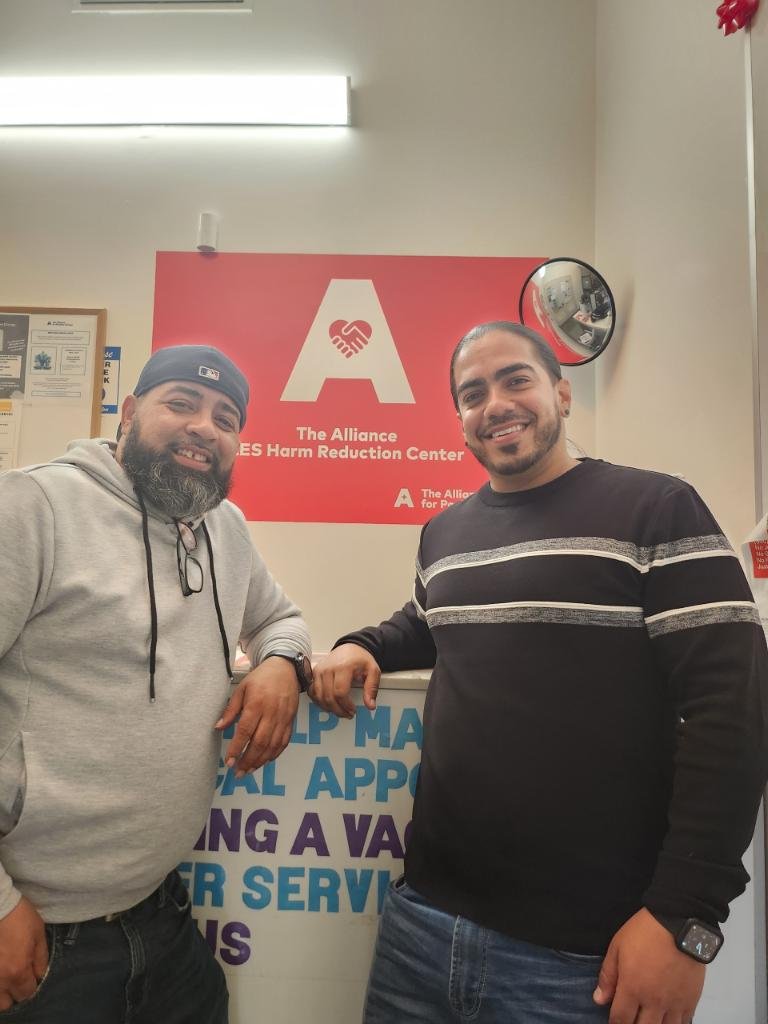1. Tell us a little about yourself, who you are, what you do, and what brought you to Alliance?
Eddie: I'm a 49-year-old Nuyorican from the Bronx. I served in the Marine Corps for several years. I'm a phlebotomist by trade, that's what I'm certified In.
My mother died in 1999 from complications from AIDS. She wasn't taking her medication. I wanted to work in this field to try to remove stigmas and make sure other people's mothers and loved ones got access to care.
I took a Peer training with N.Y.H.R.E in 2004 and worked in the field at pretty much every harm reduction provider in Harlem and the South Bronx. I started working at Alliance in 2020 as a case manager. I've provided HIV and hepatitis testing and linkage to care to thousands of people.
Joel: I’m a 32-year-old Puerto Rican from the Bronx, and I am the dad of a Siberian Husky named Henry. I was a client, got trained in Narcan use and overdose response, and decided to complete the CRPA (Certified Recovery Peer Advocate) training. I’ve been able to since get hired at Alliance to lead outreach efforts, counsel participants, and much more. I’m currently the Harm Reduction Manager at LESHRC.
2. Tell me about your current program/service and what problem it solves.
Eddie: As the Harm Reduction Coordinator at Alliance LES Harm Reduction Center, my job is to help people at all stages with all sorts of services. I've helped people find housing, find treatment for hepatitis C and HIV/AIDS, and of course with plenty of syringe exchange services. Narcan and fentanyl test strips trainings are a big part of my job. "I want you to quote me on this: no one should die because they used a drug."
Joel: I work on our Choices program which connects people who use opioids to harm reduction, Medication-Assisted Treatment (MAT), and recovery services. We do individual group counseling, support groups, events, and find what services in-house or with government programs can best serve people.
3. How has harm reduction changed since you've been working in the field?
Eddie: When I first started, we weren't even allowed to carry around Narcan, it was illegal. We faced all these arbitrary limits to what we could provide people who use drugs. Now, maybe because more of middle America is being affected by overdoses, people are waking up.
Joel: There has definitely been more access, and a lot more understanding of how important this work has been. Stats back up the importance of harm reduction, but they don’t tell the human experience, which I get to see firsthand how we help people. Harm reduction is all about meeting people where they are. After all, someone’s goals today might be different in a month, but just being consistently there for them feels really important.
4. What else should we—Alliance, and the greater harm reduction movement—be doing?
Eddie: There are some kiosks in the Bronx where groups I volunteer with where people can access sterile syringes and other harm reduction supplies. Before joining Alliance, I was working at BOOM!Health and was interviewed by Fox 5 News’ Lisa Evers. I trained her in how to use Narcan. I think more media trainings, like Joel recently did for The New York Times, and informational projects like Who’s Got Narcan? , a video two professional filmmakers helped us develop.
Joel: Having the conversation and making those services available is essential. Many people are afraid of losing access to services, so creating a safe space where they can talk about anything with their case managers, can help them with not just their harm reduction and substance use, but all around physical and behavioral well-being.
5. Is there an achievement or contribution to this program you are particularly proud of?
Eddie: I think with my years of experience, I bring a level of calm and confidence to the syringe center. I think people can see my passion for the work, which Is good for staff and participants. We're not pushing our opinions on people. I make it my business that whenever we get a new volunteer, I give them a thorough training. People come to us high, and sometimes overdose in the office, so we have to be ready. We’ve saved a lot of lives at our office, and I’ve saved a lot of lives out of the office too.
Joel: Kicking off, we had a staff shortage that we’ve fortunately filled since, but I heard from a lot of participants how they’ve felt safer knowing they could talk to me, and I’d help them with things like enrolling in Suboxone, getting proper safer use supplies, benefits navigation, and more.
6. If you could do anything in addition to what you are doing now, what would it be?
Eddie: I think I'd still be doing this! If I had a million dollars, maybe I'd have my own harm reduction center, with an overnight drop-In center, and an OPC, maybe even a 24/7 center so people could have a safe place to stay overnight.
Joel: I would open a Husky rescue farm for dogs. And something that I’ve actually been discussing with Tom and Reilly here is a program where people can come foster their pets while they seek treatment. A lot of people using drugs may not have any family besides their dogs, and are hesitant to check into an in-patient treatment program because they don’t want to give up their family—their pet.
7. Tell me about who you are and what you enjoy outside of work
Eddie: I'm a proud girl dad. I've got a 14-year-old daughter, and two grown children. I'm a big Yankees and Giants fan. I love movies. Typical middle aged New York dad.
Joel: I’m from the Bronx and love giving back to my community. I love taking Henry outside during this beautiful weather. And of course keeping strong bonds with my friends & family.

